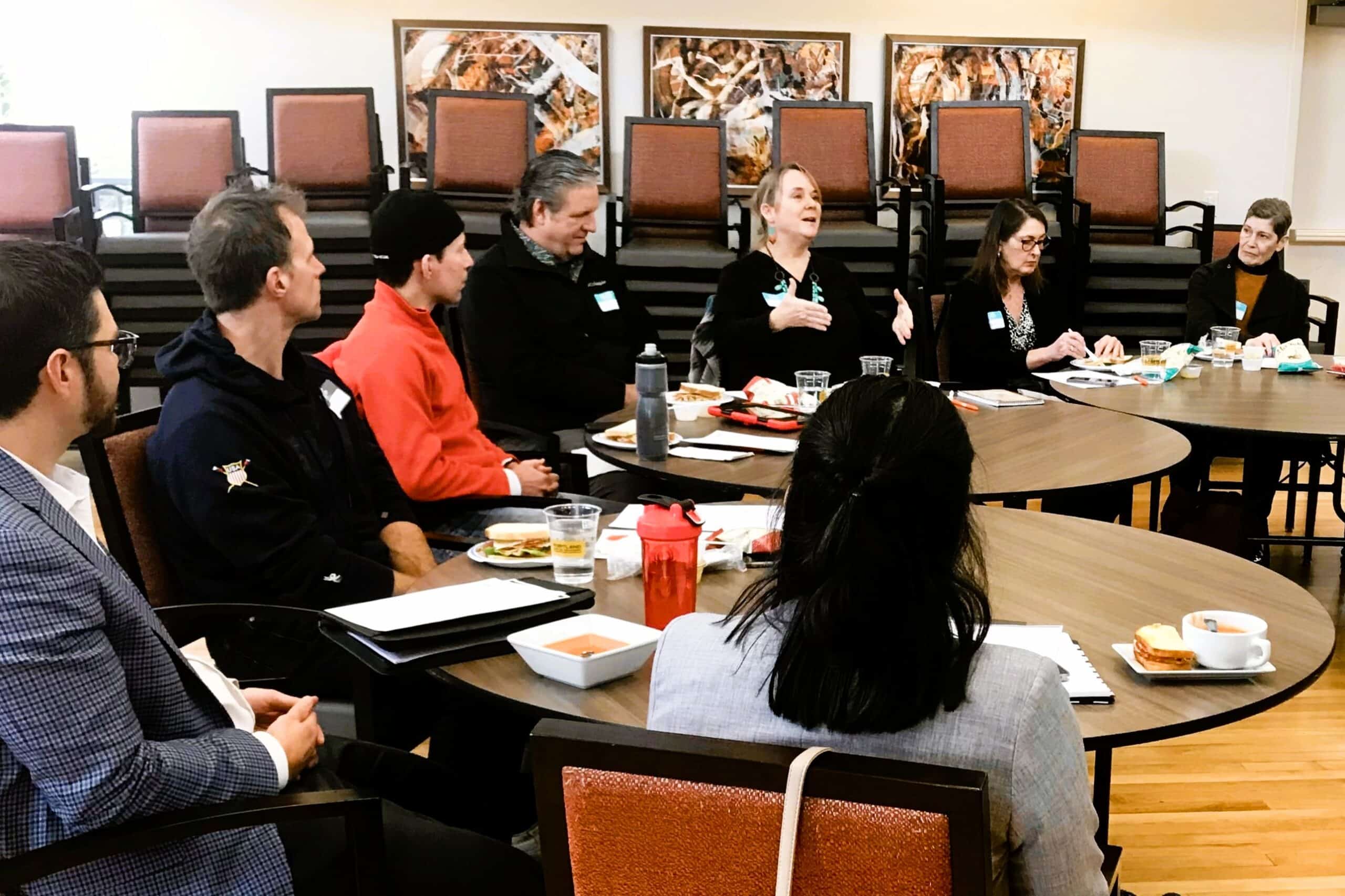It doesn’t take long to figure out that 19-year-old Jaydon Grant is just like his father, Brian. Well, except for the fact that he chose college football over basketball.
When 19-year-old Jaydon Grant was asked to stand up in front of roughly 300 people at this year’s Shake It Till We Make It gala and give a speech about his father, he was nervous. But later on, he realized, “I didn’t have to be nervous. I was just talking about my dad, something I’m really passionate about.”
Jaydon is Brian’s fourth-oldest out of eight kids. He is currently a sophomore at Oregon State University (OSU) where he plays defensive back for the Beavers football team, while studying business and digital communications. Like his father, Jaydon has elite athleticism, good instincts and dreams of playing in the big leagues.
“I feel like every college football player has aspirations to play at the next level,” Jaydon admits. “But that was never my dream growing up. If you would have bet a million dollars 10 years ago that I’d be playing football in college, I would have bet against it. I didn’t even play football until my senior year in high school.”
The honor roll student was already two-time team captain on Oregon’s West Linn High School’s basketball team when he decided to give football a shot. He wound up recording 54 tackles and four interceptions during playoffs and earned a reputation as one of the state’s premier players late in the season. He initially committed to the Oregon Ducks as a preferred walk on before changing his mind to sign on with the OSU Beavers.
How did Brian react to Jaydon’s decision to choose football over basketball?
“Regarding sports, it’s always been our choice,” Jaydon explains. “He never forced me to work out or play sports. In fact, he hardly encouraged it, and I mean that in the best way possible.
“My dad’s done a really good job of letting us be our own person. He wanted us to create our own stories. Whatever we were interested in doing, he was always supportive of it. He always said, ‘When you see a window of opportunity, don’t just take it, run through it.’”
Baby Rasta Monsta
The year Jaydon was born (1998) was when the “Rasta Monsta” was on fire. It was Brian’s second season with the Portland Trail Blazers. Appearing in 48 out of 50 games, he grabbed an average of 9.8 boards per game, which ranked him 12th in the NBA in rebounding. He hauled down 70 rebounds—just over 17.5 per game—and led his team to their first Pacific Division title since 1991.
What was it like growing up with a famous dad?
“Once I got older, I was able to reflect on the caliber of professional basketball player he was,” Jaydon says. “I remember as a little boy always wanting to go to his games, being eager to be there. It was all a blur. It goes by really quick. But it was such a unique experience being able to watch my dad play at the highest level.”
It wasn’t just Brian’s athletic prowess that made Trail Blazers fans adore him—he was known around town for his big heart. He took pride in his role as Ronald McDonald House spokesperson for Oregon and Southwest Washington and spent his spare time visiting children’s hospitals.
Brian has said that the highlight of his NBA career wasn’t the 7,933 points he scored or his 5,622 rebounds—it was when he received the J. Walter Kennedy Citizenship Award in recognition of his outstanding community service and charitable work during the 1998-1999 season.
“My dad came from nothing, evolving to live a professional basketball player’s lifestyle. But he always taught us to be humble in every way growing up. That’s something I’m really proud of now,” Jaydon says. “I hear things he did back in 1998—the year I was born—how he treated people at that time. And he’s still the same way. I’m glad he raised me to be that way too.”
Dark Clouds
Jaydon was 9 years old when his dad told him he had Parkinson’s. “I remember him sitting us down. They told all of us together at the same time. In that very moment, I put it past me. But once I really realized what he had told me, that’s when I started feeling that fear of the unknown.
“I didn’t know anything about Parkinson’s,” he says. “Then my dad took us to a gala to raise money for Parkinson’s research. That was the first time I saw people with Parkinson’s symptoms. It was hard to see what happens to people with Parkinson’s. It was hard to realize what was going to happen to my dad.”
Jaydon was worried about his dad feeling embarrassed by his Parkinson’s symptoms, especially when he noticed Brian trying to hide his tremoring hand whenever they were out in public. It bothered him when people would talk about it at school.
“I dealt with uneducated remarks about my dad’s diagnosis,” he says. “Like the time my teacher told the whole class that a new development showed that people with Parkinson’s only had a life expectancy of 10 years after being diagnosed. That scared me to death. To be honest, I don’t think he had any idea my dad had Parkinson’s. But that was one of those moments when I internalized stuff.
“I’ve had classmates come up to me, saying, ‘Things are only going to get worse for your dad.’ I was mad, but I knew a lot of people weren’t informed about Parkinson’s. So I decided to keep it to myself and not act out on my anger.”
Silver Linings
Ten years into his diagnosis, Brian is doing exceptionally well and has been successful at slowing down the progression of his disease. “I believe it’s because he’s been exercising his whole life,” Jaydon says. “His ability to train has helped him stay active, which is the most important thing you can do when you have Parkinson’s.”
He says the Brian Grant Foundation has been a big help too. It gives his dad a sense of purpose and the chance to help others stay active and live happier, healthier lives with Parkinson’s. And helping others is something his dad has always loved to do.
“I have learned so much just being around the foundation since it was launched,” Jaydon says. “It taught me everything I know about Parkinson’s. All the resources it provides to help people with Parkinson’s and hearing how effective my dad’s foundation has been at helping people—that’s what gives me hope and comfort in those situations.
“I feel like a lot of people know the ‘good guy’ image that Brian Grant has in the community. But I don’t know if people really understand that this is how he is all the time. He’s always trying to help others, always putting others ahead of himself. Anyone who has doubts or thinks that he’s only doing this in his public life should know that this is who he really is.”
By Kathryn Jones



